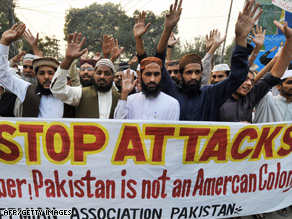Gunmen Attack Tourist Areas in India Gunmen attack seven sites in Mumbai, India, killing dozens and taking hostages at areas frequented by foreigners.
World News 2008. 11. 28. 02:15
The special forces teams went room-to-room in the five-star Oberoi hotel to rescue 25 hostages, and police launched a fresh offensive to sweep out gunmen believed to be still holed up in the iconic Taj Mahal Palace and Tower hotel.
Two explosions on the top floors of the Taj were shown live on Indian television , while the Oberoi's 18th floor was engulfed in flames. As the commando teams removed the hostages, helicopters circled overhead and crowds of onlookers cheered from the street below. Five gunmen were reportedly still inside the hotel. Earlier, at least four dead bodies and a trickle of hostages were taken out of the Taj--a castle-like, 1903 landmark that was set on fire during the attacks and has been transformed into a smoldering symbol of a city under siege.
Eight Israelis were being held hostage at a Jewish outreach center, officials said, including a young rabbi and his wife. Their condition, and the total number of hostages trapped in or rescued from the hotels, was not known.
"We can say, this is the worst most brazen attacks in Indian history because people were shooting openly on the street," said police official A.K. Sharma. He was speaking at the funeral of a popular police inspector, who was killed Wednesday night while trying to stop gunmen who were attacking at the train station. "It's a violent situation that's still ongoing. Mumbai remains at war."
With the attacks stretching into their 16th hour, Prime Minister Manmohan Singh condemned the terror strikes in a nationally televised address Thursday afternoon. Some news channels split their screens to show both the prime minister speaking and the ongoing battle between security personnel and the terrorists.
Singh said the Mumbai attacks were "well-orchestrated" by terrorists, who chose well-known and high-profile targets. The prime minister called for creation of "a central agency" to investigate terrorism in India, where some 44 bomb blasts in seven different cities have killed more than 150 people since May.
As the sun set, some hostages unfurled "Save Us" banners from the windows of the Taj hotel, across from the Gateway of India monument and Mumbai's waterfront. Others climbed from upper-story windows using bed sheets tied together as ladders.
Authorities said more than 300 people were wounded in the highly coordinated attacks that started 10:30 Wednesday night. In addition to the five-star hotels, bands of masked gunmen armed with assault rifles, hand grenades and explosives attacked a popular café packed with tourists; the historic Metro Cinema; a crowded train station; the Chabad-Lubavitch Jewish center and a hospital.
In one case, a police van was stolen and gunmen opened fire in the street indiscriminately.
At the Jewish center, five rounds of shooting were heard Thursday and a grenade was thrown, said army officials who were surrounding the site and launching a rescue effort.
Despite the recent wave of bombings in India, Wednesday's assaults were seen as unprecedented, authorities said, in terms of the open, coordinated effort to lay siege to well-known symbols of India's prosperity and to places where Westerners gathered.
'World News' 카테고리의 다른 글
| Russia to help Venezuela develop nuclear energy (0) | 2008.11.28 |
|---|---|
| Thai Government Declares State of Emergency Around Airports (0) | 2008.11.28 |
| Thailand's PM Rejects Calls by Protesters, Military to Resign (0) | 2008.11.27 |
| Violence Against Journalists Grows in Mexico's Drug War (0) | 2008.11.26 |
| Protesters Flood Thailand's Main Airport, Shutting Down Flights (0) | 2008.11.26 |








